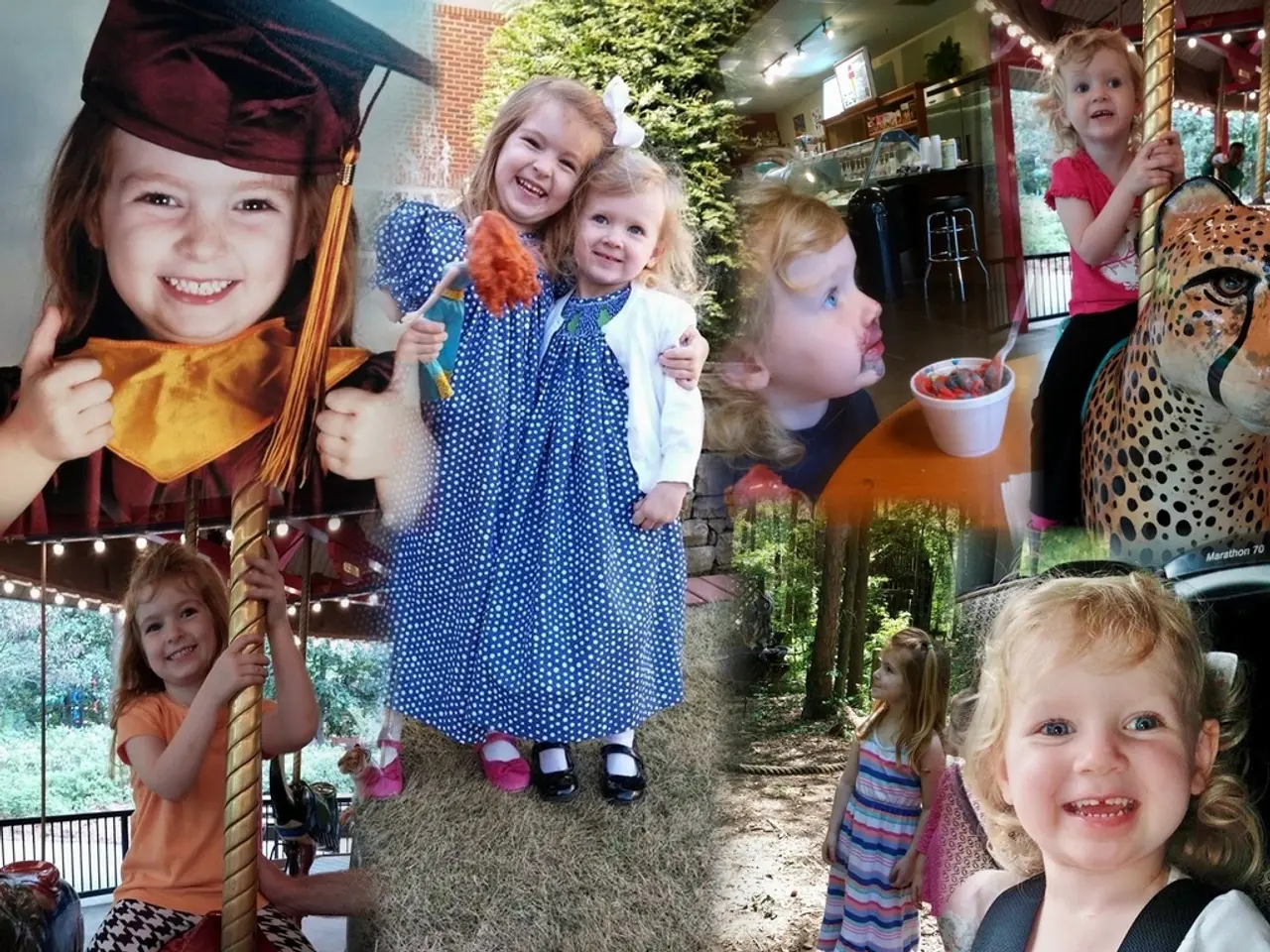Indian Cinema's Most Heartbreaking Movies: The Impact of Tears and Cultural Practices in Memorable Filmdom Tearjerkers
In the realm of global cinema, Indian films have carved a niche for themselves, weaving together cultural traditions, vibrant festivals, close-knit family ties, gender roles, and time-honored rituals into powerful emotional stories. These films, often referred to as the "Tears and Traditions" of Indian cinema, offer more than just tearful moments; they make us pause and reflect, question our values, and uncover timeless truths hidden within cultural norms.
"Masaan" (2015), for instance, weaves the grim realities of caste, tradition, and loss, while characters from Phaphamau seek hope amid tragedy and social condemnation. The film, available on major streaming platforms like Netflix, Amazon Prime, Disney+, and regional services with Indian content, is a poignant exploration of hope amid despair.
Another powerful film, "Taare Zameen Par" (2007), delves into the emotional pain of not fitting into cultural and academic norms, and the pressure Indian families place on their children. The movie, which can be understood even without prior knowledge of Indian traditions, acts as an emotional discharge valve, providing catharsis for viewers.
"Dangal" (2016) presents a father's dream meeting modern feminism, creating emotional tension and triumph, but not without heartbreak. The film, like many others in this genre, reflects sacrifices often involving education, personal happiness, and safety, made with or against cultural pressures.
Reflecting on these films after watching them can help the viewer fully process the emotional events. Familiarizing oneself with the traditions portrayed in the films can deepen the viewer's experience. Looking for hidden symbolism, like familial rituals and metaphors, can enhance the viewer's understanding of the films.
Common themes in these powerful Indian sad movies include intense love and sacrifice, family separation or exile, social or communal conflict, and the struggle between individual desires and societal/familial expectations. Emotional triggers often involve betrayal, loss of loved ones, tragic or incomplete romantic relationships, and the pain of unfulfilled dreams or memories.
For example, "Gadar: Ek Prem Katha" deals with love amidst the violent backdrop of the 1947 Partition of India, highlighting communal strife, sacrifice, and protective love crossing religious divides. Another film, "Saiyaara," explores emotional healing and depth of commitment beyond physical attraction, as wounded souls support each other through pain and memory.
Family conflict and the crushing weight of familial expectations are poignantly portrayed in classic films like "Meghe Dhaka Tara," where the protagonist’s suffering is intertwined with family indifference and societal decay, with tuberculosis metaphorically linked to emotional neglect.
Incomplete or unfulfilled love is also a powerful motif, conveying the pain and beauty of relationships that do not reach fulfillment, as discussed in Bollywood films such as "Sanam Teri Kasam" and "Ram Leela."
On social media, common emotional triggers pointed out include the pain of exile from family and the significance of individual worth, as well as nostalgia and sorrow tied to personal and collective histories.
In sum, powerful Indian sad movies often engage with themes of love, sacrifice, family turmoil, social upheaval, memory, and unfulfilled desires, evoking a wide range of emotional responses such as grief, empathy, and catharsis.
More recently, films like "Thappad" (2020) have challenged traditional norms, following a woman reasserting her dignity after a domestic misstep, challenging a tradition to "stay silent and forgive." These films offer a cultural reflection for diaspora audiences, connecting them to their roots and sometimes challenging their perceptions.
Watching these films with tissues ready is advised due to their emotional impact. Yes, tissues are recommended while watching these films due to their emotional impact. So, if you're ready for a rollercoaster of emotions, dive into the world of Indian cinema's "Tears and Traditions."
These heart-wrenching dramas and thoughtful animations from Indian cinema, often grouped as "Tears and Traditions," can be found across various platforms like Netflix, Amazon Prime, Disney+, and regional services. After watching them, one might find themselves in need of tissues, as these movies evoke a range of emotions such as grief, empathy, and catharsis. Interestingly, reviews and discussions about these movies on social media platforms highlight common emotional triggers like the pain of exile, the significance of individual worth, and nostalgia tied to personal and collective histories.






